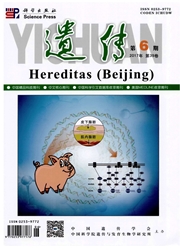

 中文摘要:
中文摘要:
微生物耐药性已成为全球关注的严重问题,其演化机制和调控机理也已成为研究热点。近年来的研究发现,一些微生物耐药性机制受到群体感应系统的调控。群体感应是一种在微生物界广泛存在并与菌体密度关联的细胞?细胞间的通讯系统。高密度的菌落群体能够产生足够数量的小分子信号,激活下游包括致病毒力和耐药性机制在内的多种细胞进程,耐受抗生素并且危害寄主。本文结合国内外最新的研究进展,对微生物群体感应系统的研究现状进行了概括性介绍,重点阐述了群体感应系统对微生物耐药性机制的调控作用,如微生物生物被膜形成和药物外排泵调控等方面的作用,并探讨了利用群体淬灭控制微生物耐药性的新策略。
 英文摘要:
英文摘要:
Microbial drug resistance has become a serious problem of global concern, and the evolution and regulatory mechanisms of microbial drug resistance has become a hotspot of research in recent years. Recent studies showed that certain microbial resistance mechanisms are regulated by quorum sensing system. Quorum sensing is a ubiquitous cell-cell communication system in the microbial world, which associates with cell density. High-density microbial cells produce sufficient amount of small signal molecules, activating a range of downstream cellular processes including virulence and drug resistance mechanisms, which increases bacterial drug tolerance and causes infections on host organisms. In this review, the general mechanisms of microbial drug resistance and quorum-sensing systems are summarized with a focus on the association of quorum sensing and chemical signaling systems with microbial drug resistance mechanisms, including biofilm formation and drug efflux pump. The potential use of quorum quenching as a new strategy to control microbial resistance is also discussed.
 同期刊论文项目
同期刊论文项目
 同项目期刊论文
同项目期刊论文
 期刊信息
期刊信息
